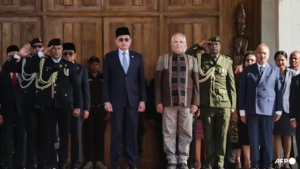London – We are living in a time when anyone can speak but not everyone is believed. On social media, thousands of people claim to be experts. On LinkedIn, almost every profile looks extraordinary. In the digital landscape, self-promotion has become a common language, but its value is rapidly decreasing because people have heard too much of it.
In this environment, audiences no longer focus on what you say about yourself. They focus on what the world says about you. This is the essence of Social Proof 3.0 and it explains why awards are now one of the strongest and most credible trust signals in the age of information overload.
The Era of Distraction and Declining Trust
In modern communication theory, we are living in the Attention Economy, a period where attention is the rarest and most valuable resource. Every day, people are exposed to more than 10,000 marketing messages from advertisements, influencers, and promotional content. As a result, trust in promotional language has sharply declined. People have become more skeptical. They do not believe slogans, sponsored reviews, or polished taglines as easily as they once did.
Today, they are not seeking claims but confirmation. They want proof that is verified by independent third parties. They look for signals that others already trust you. Awards provide that kind of proof and offer a level of credibility that self-promotion cannot achieve.
Social Proof as the Universal Language of Trust
Psychologist Robert Cialdini described social proof in his book Influence as one of the most powerful principles of persuasion. People are naturally drawn to follow choices that have already been validated by others or endorsed by credible authorities.
The examples are clear:
You are more likely to trust a restaurant that has received a “Best Culinary Award” than one that only says “our food is delicious.”
You are more interested in partnering with a company that has earned a “Top Innovation Award” than one that simply claims “we are innovative.”
You are more confident in a speaker named “Most Influential Leader” than in someone who only writes “experienced speaker” in their biography.
All of these examples work because awards represent a form of social proof that cannot easily be manipulated. They are based on external evaluations, independent validation, and objective recognition.
Social Proof 3.0 as a Tool for Differentiation
In the early digital era known as Social Proof 1.0, customer testimonials were sufficient.
In the social media era known as 2.0, metrics like followers, likes, and reviews became indicators of credibility.
Today, in an environment filled with excessive content and AI-generated information, all of those signals can be purchased or faked. Audiences have become wiser and now look for authenticity that cannot be fabricated.
This is why we are now in the era of Social Proof 3.0. Awards, institutional recognition, and verified third-party validation have become the most valuable signals of credibility.
Awards create differentiation. They make you stand out in a market full of similar claims. They deliver a powerful message without words:
“In a world full of claims, I am not just speaking. I have been examined, evaluated, and recognized.”
The Dual Impact: Trust and Attraction
The power of awards goes beyond credibility. They also accelerate decision-making. In communication strategy, this effect is known as a trust shortcut, a faster path to conversion because audiences no longer need additional proof.
Examples include:
Clients are more likely to sign contracts after seeing your achievements.
Investors feel more confident about investing because your company has received public recognition.
Media outlets are more open to covering your story because your credibility is already established.
Awards also serve as a magnet for authority. They attract collaboration opportunities, speaking invitations, and strategic partnerships without the need for you to pursue them actively.
Practical Ways to Turn Awards into a Social Proof Engine
To unlock the full power of awards as Social Proof 3.0, it is essential to go beyond simply receiving them. You need to communicate them effectively through the right strategies:
- Highlight Awards Across All Platforms. Mention them in your social media bios, website, LinkedIn profile, pitch decks, and email signatures. They function as continuous credibility markers.
- Tell the Story Behind the Achievement. Do not just write “award-winning.” Explain the journey, the criteria, and the meaning behind the recognition. Stories build deeper emotional engagement.
- Maximize Third-Party Exposure. Share press releases, request testimonials from award organizers, or participate in podcasts discussing your accomplishments. Every external mention adds weight to your social proof.
- Use Awards to Reposition Your Brand. Once you have received recognition, update your messaging and introduce yourself as “Recipient of the XYZ Award” in all communication materials. This immediately boosts your perceived value.
Conclusion: When Words Lose Their Power
In a world where everyone is speaking, only a few are truly heard. In a time when anyone can promote themselves, only those who are validated are genuinely trusted.
Awards give you that level of trust. They make you more than visible; they make you credible.
At the end of the day, trust is not built by how much you say about yourself. It is built by how much others say about you. And in that pursuit of trust, awards are the ultimate proof that cannot be purchased, fabricated, or ignored.









